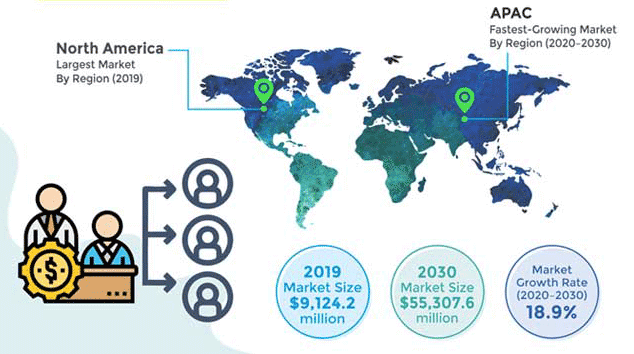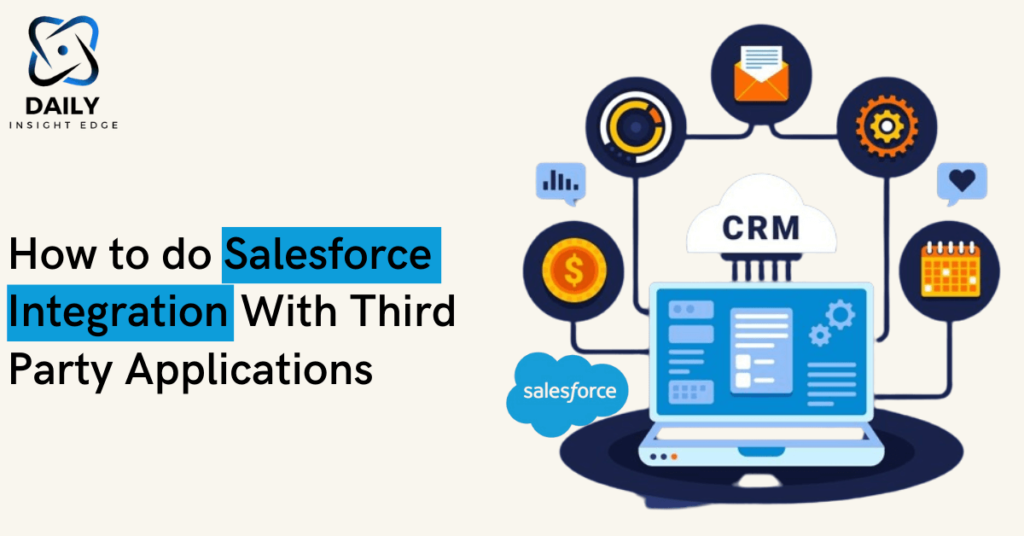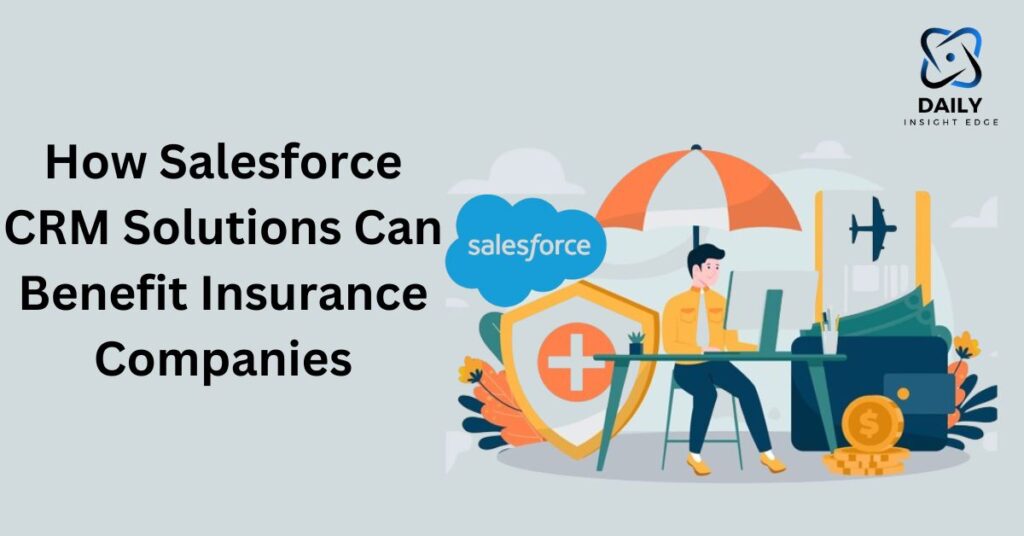Salesforce integration with third party with the existing business is getting space in the headlines all around the World. Salesforce is fair and square in the World’s best Customer Relationship Management software with a market share of 22%. From small to medium enterprises to Salesforce, Companies are using Salesforce; everyone has the common aim of becoming the next market leader. With time expectations of businesses, as well as the demands of customers, go on and off the hook, and to entertain each one of them, Salesforce is trying its best to come up with new inventions or feature updates.
To serve various requirements, Salesforce AppExchange offers third-party app integration and allows businesses to enjoy the high value of demand Salesforcey chain. Some most popular integrations are WhatsApp, MailChimp, Heroku, Google ClSalesforceox, QuickBooks, LinkedIn, etc. Learn what integration with Salesforce is and why businesses plan to integrate third-party applications with Salesforce.
What is Salesforce Integration?
Salesforce Integration refers to connecting two or more systems and enabling businesses to streamline different processes. Salesforce uses APIs to interpret messages that the system transmits every time.

Integration with Salesforce CRM, users get a comprehensive Salesforce form to perform their routine business activities without hopping from one platform to another. To maintain consistency between multiple systems of your organization, Salesforce Integration is the best option that you can go ahead with.
Salesforce CRM Integration Market Trends

According to the latest report by Everest Group users and customers leveraging Salesforce CRM have specific expectations:
40% of users believe that adopting Salesforce can allow them to identify new revenue streams and reach greater customer potential.
55% feel that Salesforce is looking forward to providing a centralized, trusted source of customer data and making possible well-informed decision-making processes.
For 50% of users, the expectation is that seamless and quick salesforce CRM integration will play a significant role in increasing their business-specific systems both upstream and downstream.
Now, let’s look deeper into the realm of Salesforce integration from different key points of view.
What Are Salesforce Integration Types
Salesforce provides various ways to salesforce third party integration data into your business systems. Below, we’ve mentioned different Salesforce integration types widely used by many companies and organizations.
1. Salesforce AppExchange
It stands as a leading enterprise Salesforce cloud marketplace that includes an extensive array of pre-built applications, consultants, and solutions. Within Salesforce AppExchange, a multitude of applications is available for swift installation directly into the Salesforce-supported environment. AppExchange serves as an ideal solution, not only making the integration process but also contributing to time, cost, and effort savings.
2. Batch Integration
If you are aiming to extract and transform data like accounts, contacts, and opportunities from the existing CRM system, or regularly loading customer billing data into Salesforce from a remote system every week, Batch Data synchronization emerges as the widely adopted approach for data integration. This method is acknowledged as the simple solution for efficiently importing and exporting large volumes of data.
3. Real -Time Integration
When it comes to aligning marketing, and sales activities in Salesforce. Real-Time Integration is regarded as the best salesforce integration type. It enables almost immediately replicated data in the other system. In terms of managing queues and addressing errors, this salesforce integration is more suitable and presents fewer challenges.
4. Real – Time Mashups
It is used to efficiently minimize data and store large files across multiple applications, real-time mashups play a crucial role in ensuring availability whenever needed by Salesforce. They show both externally hosted and Salesforce-hosted data. The use of mashups is confined to brief interactions and handling small data volumes, making them particularly advantageous for making customized UIs in Visualforce.
Read Also: How Salesforce CRM Solutions Can Benefit For Insurance Companies
How To Do Salesforce Integration With Third Party Apps
Follow the below steps to do salesforce integration with third party apps – seamlessly. Although this process may vary from application to application and which approach you are adopting to integrate with.
- Select the application: Select the application that you would like to integrate with your existing system. Before finalizing the application, ensure it is compatible with Salesforce and its functionalities.
- Find the best integration method: Determine which integration method you will use to integrate the third-party application, as Salesforce offers a variety of integration methods like Rest API, SOAP API, Apex REST API, Apex SOAP API, Bulk API, Streaming API, and Lightning Platform API.
- Get API Credentials: To use any of the Salesforce APIs, one must obtain the credentials of their API. This enables you to create a connected application within Salesforce and retrieve the client’s ID and secret on the app.
- Configure the third-party application: In this step, configure the third-party application to connect to the Salesforce CRM by inputting the API credentials in the third-party app’s settings.
- Build the Integration: Now you can start working on integration. This majorly Salesforce involves writing codes used in Salesforce API to communicate with data in Salesforce and its functionality.
- Test what you have created: Once the integration is ready, test it on each possible parameter to ensure it works up to the mark. You can perform testing on both Salesforce and third-party applications to ensure that data transmission is happening correctly.
- Proceed with Deployment: Move ahead by Salesforce the integration by moving integration code, and if occurs any changes, then configure it in the production environment.
- Monitor the Integration: Monitoring the deployment is necessary for Salesforce to continue to work without errors. Don’t forget to check any error logs or performance metrics to identify or resolve issues that might arise in the future.
Benefits of Salesforce Third Party Integration
Even though the integration process differs from one application to another and seems complex, it renders various advantages to businesses. Some of them are:
Streamlining of Processes
Salesforce Integration with third party applications unlocks the opportunity to develop uninterrupted collaboration between various departments of an organization. Boost in Sales numbers, successful marketing campaigns, and optimization of various business processes can be a good example of third party integration in Salesforce. Enhanced efficiencies, faster data processing, and easy accessibility to information are the added benefits.
Ease of Use
When two systems are integrated, it’s always to make things easier. CRM users can take full advantage of third-party integrations while staying on the same platform. No matter what size of business Salesforce is, whether you are an expert or a fresher, integration of Salesforce is a piece of cake for everyone if you have the right process in your hands.
Building Network
Salesforce excels in building a robust customer network, setting it apart from its contemporaries. With a versatile backend system, you can collect all related information on prospects from all the channels. Building a Salesforce customer network gets easier with this.
Secure Revenue
When there is a lack of traceability, businesses might put substantial revenue at stake. Things go the opposite when you have a third-party application with Salesforce CRM; it helps businesses get a source of never-ending opportunities to garner and earn great returns on investment.
Conclusion
Any business can use Salesforce Integration to escalate productivity and efficiency, but do you know what would make this process easier and better? Salesforce integration with third party should collaborate exclusively with a Salesforce integration partner to stay away from uncertainties and potential future complications. A Certified Salesforce Partner who gets an in-depth understanding of your business, helps you determine the requirements and provides exceptional Salesforce Integration Services. Additionally, before settling on a product, it is important to adhere to the above best practices to guarantee a smooth and seamless integration process.
Frequently Asked Questions
Salesforce third party integration allows for a seamless exchange of data and functionality, enhancing overall business processes and providing a more comprehensive view of customer interactions.
The cost of Salesforce CRM integration depends on the specific needs of your business. Salesforce provides a range of integration types, each with its own set of advantages. Therefore, the decision of which type to adopt rests on you, choosing the one that aligns most effectively with the unique requirements of your business.
Yes, Salesforce prioritizes data security. When selecting third-party solutions, it's important to choose certified and reputable vendors with a focus on data protection. You can leverage secure authentication methods like OAuth to secure salesforce integration.
Some common challenges in salesforce CRM integration are data mapping discrepancies, security concerns, and ensuring compatibility between different systems. Working with Salesforce integration professionals can help mitigate these challenges.
Here are some commonly integrated data that include customer information, sales leads, communication history, and transactional data. The extent of integration depends on the capabilities of both Salesforce and the third-party apps. 1. Why do you need Salesforce integration with third party applications?
2 How much does it cost for salesforce CRM integration?
3. Is it secure in Salesforce integration with third-party platforms?
4. What are some common challenges in integration with Salesforce CRM?
5. What kinds of data can be integrated between Salesforce and third-party applications?

Eliana Cooper is a highly analytical and results-oriented SEO Analyst and Digital Marketing Professional. She is an expert in blogging and content marketing, always sharing the newest trends and innovations at Daily Insight Edge.



